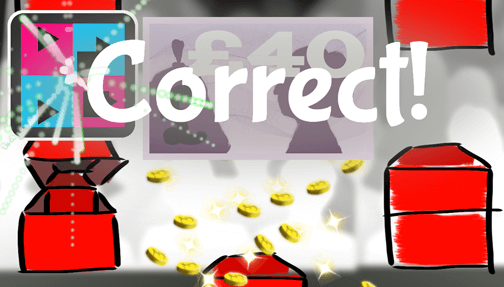A memory game that you can play on the iPad may help ward off the telltale signs of early-stage dementia.
Researchers from the University of Cambridge in England developed a “brain-training game” called Game Show, and found that people who played it on a regular basis saw improvements in episodic memory and were better able to recall complex visualizations.

Even better, the researchers discovered that the interactive game, during which users match up geometric shapes to earn points, was enjoyable among the study participants, something that is vital to successful cognitive training.
“Patients found the game interesting and engaging and felt motivated to keep training throughout the eight hours. We hope to extend these findings in future studies of healthy ageing and mild Alzheimer’s disease,” said lead author Dr. George Savulich.
Halting Memory Loss
Some 48 million people around the world suffer from dementia, and amnestic mild cognitive impairment, or aMCI, is considered one of the warning signs of cognitive deterioration.
“Early intervention and effective treatment is critical for neurodegenerative disorders, particularly before extensive neuropathological damage,” write the authors in the journal Neuropsychopharmacology.
“Recent interest in nonpharmacological approaches of enhancement, which utilize novel technologies to target cognitive symptoms rather than diagnostic category, offer an alternative means for improving cognition in the absence of effective drug treatments,” add the researchers.
Related: Walking May Reverse Effects of Dementia
In the current study, researchers instructed participants who had been diagnosed with aMCI to play Game Show on an iPad for eight one-hour sessions over the span of one month. Compared to a control group that didn’t take part in cognitive training, the people who played the game showed strong improvements in episodic memory, which suggests they were able to limit the deleterious effects of early-stage dementia.
“Good brain health is as important as good physical health. There’s increasing evidence that brain training can be beneficial for boosting cognition and brain health, but it needs to be based on sound research and developed with patients,” said study author Barbara Sahakian, who co-invented the game.
“It also [needs] to be enjoyable enough to motivate users to keep to their programs. Our game allowed us to individualize a patient’s cognitive training program and make it fun and enjoyable for them to use,” said Sahakian.
Related: Diet Soda May Be Linked to Stroke, Dementia
The researchers believe their findings can help improve memory in at-risk patients, which is especially important given the flowing tide of baby boomers who are moving past the age of 65.
“Episodic memory robustly improved in the cognitive training group. ‘Gamified’ cognitive training may also enhance visuospatial abilities in patients with amnestic mild cognitive impairment,” report the study authors.
The researchers believe that gamification “could complement pharmacological treatments for amnestic mild cognitive impairment and mild Alzheimer’s disease.” They add that more trials are necessary to duplicate the strong findings. Yet one important point — that the game must be attractive to patients — appears unmistakable.
“Importantly, cognitive training with a game effectively maintains high levels of participant enjoyment and motivation and promotes confidence both in the self and subjective memory ability,” they report.
Richard Scott is a health care reporter focusing on health policy and public health. Richard keeps tabs on national health trends from his Philadelphia location and is an active member of the Association of Health Care Journalists.


![How To: ‘Fix’ Crepey Skin [Watch]](https://cdn.vitalupdates.com/wp-content/uploads/2017/05/bhmdad.png)












